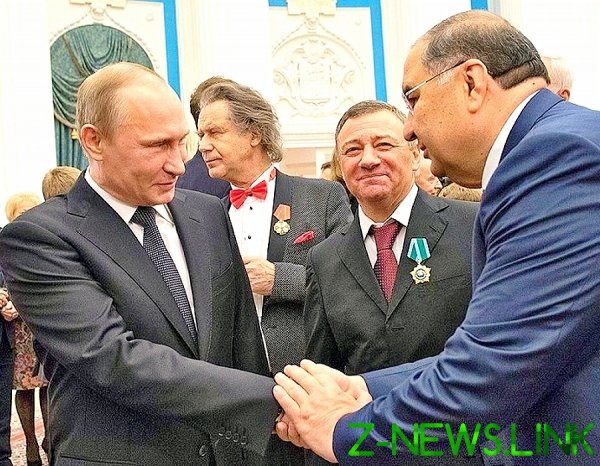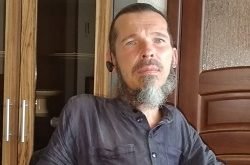
By this measure large businesses for the first time ahead of the security forces.
President Vladimir Putin expressed the interests of the oligarchs, bankers and big businessmen, said 38% of Russians. It follows from the data of “Levada-center”, which examined “Vedomosti”. For the first time research from 2000, the oligarchs on this indicator surpassed the security forces about defending Putin’s interests which is spoken by 37% of respondents. In October 2017, the ratio was 41 to 31% in favor of the security forces.
According to 28% of the respondents, the President represents the interests of officials (in 2017 so consider 31%), 18% as I believe that Putin cares about the needs of the middle class, while 16% (17% in 2017) is that it defends the aspirations of ordinary people. Most of this time decreased the proportion of those who speak of the activities of the head of state for the benefit of “the Directors” (from 25 to 17%), and cultural and scientific elite (from 15 to 8%).
But the answer to the question, what segments of the population relies Putin continues to unconditionally lead the security forces, although their numbers also decreased: now think so 46% of respondents to 51% in 2017. the Following places are occupied by the oligarchs (37 and 34% respectively), government officials (27 and 31%) and “the Directors” (17 and 26%).
Not changes for the better and the General attitude of Russians to the President. The amount of positive ratings continued to fall second consecutive year: in October 2019 with admiration and sympathy to Putin treated 32% of respondents (versus 42% in April 2017), and in March 2020 – 29% (for comparison: in March 2015, the figure was 47%). Negative evaluation (revulsion, disgust) increased slightly (from 11 to 13%), and neutral has not changed – 60% compared to 61% six months ago.
Similar dynamics is observed in the responses to the question: “What do you like about Vladimir Putin?”. Thus, the share of those who consider him a skilled politician, has dropped from 49% in July 2018 to 42%, strong-willed and determined person – from 30 to 25%, “a true leader, able to lead people” from 17 to 13%. While the proportion of Russians respect Putin for his foreign policy (12%), was minimal in 2013 (the maximum was in March 2016 – 22%).
About the negative traits of the President of the respondents say much more often. 14% believe that he is alien to the interests of the people and it is associated with corrupt politicians, and only 13% (vs. 17% in July 2018) scold him for his relationship with big capital. From 9 to 11% (the highest in the last six years) increased the share of those who believe that Putin is unable to cope with the country’s leadership. At the same time, on belief of 43% of Russians, people trust the current President because “we don’t see anyone else they could rely on.”
The view that Putin expresses interests of big business, connected with the discussion about the fall in oil prices and the depreciation of the ruble, said the Director of “Levada-center” Lev Gudkov: “This topic is very widely discussed on the Internet, but the events themselves are most hit by the most informed segments of the population and young people. Sympathy for the President, too, decreased the most among young people. And for the first time, it is due to social networks, where it was widely discussed, was followed by such a reaction to political and economic events.” The authority of the security forces is supported by the periphery, i.e. that is in the conservative groups, says the sociologist. As for the decline of positive assessments of Putin, it is especially noticeable compared to 2008 and 2015, when there was a peak of sympathy for him, says Gudkov. This, he said, and added the negative reaction to the amendment to abolish presidential terms, after all, about 55-58% of Russians believe that the government needs to change, otherwise this leads to loss of efficiency of the government. “In any case, 60% of the population is neutral with respect to the President, it is a carrier design, perhaps the equivalent of saying, can do nothing, nothing bad nor good to say can’t. This is the basic attitude to the authorities”, says the sociologist.
The wording of the question about whose interests does Vladimir Putin, not quite correct – if the word “oligarchs” has a negative connotation, the “large businesses” – rather positive, according to the head of Fund of development of civil society Konstantin Kostin: “So the growth can be explained by the fact that people do not approve of the President’s support of the oligarchs, and what they think is right and supporting big business.” A decline, according to respondents, the influence of the security forces can be attributed to several high-profile cases in which the President made statements and revelations of corruption in the law enforcement environment, the expert assumes.
“The fact that the percentage of those who believe that the President represents the interests of ordinary people, not much grows, it can be explained by the fact that the majority of respondents consider themselves just ordinary people. The attitude to them they assess real circumstances in your life – and this despite the fact that the income of ordinary people for 20 years has greatly increased,” says Kostin. To this category of answers started to grow, you need not to change information policy in the coverage of the President, and to do everything to make people’s lives truly changed, the expert concludes: “for Example, to achieve the performance stated in the presidential message of national projects, which were allocated as much money as had never been allocated”.
© 2020, paradox. All rights reserved.





